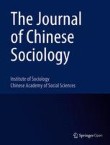Over the past decades, the world has undergone significant changes, which have profoundly impacted people's attitudes and behaviors towards intimate relationships, reproduction, child-rearing, and family building. Causes of these changes are many, for example, political and economic transformations have affected living conditions and development opportunities of individuals, including housing, education, and employment, thereby influencing their fertility plans. Moreover, demographic shifts have led to a greater focus on family capacity building, with attention paid to empowering families from within and promoting family friendly society to improve the wellbeing of family members.
Furthermore, cultural differences have created diverse views and values on family and reproduction. Some younger generations prioritize self-realization and individuality, pursuing personal freedom and independence and being cautious about family formation. Others consider family a vital aspect of life and emphasize the importance of family and child-raising. Technological advancements, such as the use of new media in education and development of artificial intelligence, have also provided more choices and support for emerging ideologies and practices in family and intimate relationships.
Guest editor(s):
Diyang Zeng(Nanjing University of Finance and Economics)
Yang Shen (Shanghai Jiao Tong University)
To address these challenges and opportunities, it is essential to examine concomitant theoretical and empirical changes in intimate relationships. Therefore, we are inviting scholars from diverse countries to share their research findings on how political, social, economic, and technological changes are affecting intimate relationships, reproduction, child-rearing, and family building, and how government, schools, and communities can support them to make better choices for the future.
Here is a list of themes for your consideration, including but not limited to:
- Work and parenthood balance
- The role of technology using in child-rearing
- Family building and community development
- Child-raising in dual income families
- Parenting in the digital age
- Community support and resources mobilization
- Comparison between different countries
- Stay-at-home parents
- Family formation processes, including getting married and having children
Submission instructions and timeline
May 31 2023 | 800-word abstract due |
Jun 15, 2023 | Notification of accepted abstracts |
Oct 31, 2023 | Full manuscript due |
Jan 31, 2024 | Final revision due |
Apr 30, 2024 | Date of publication |
